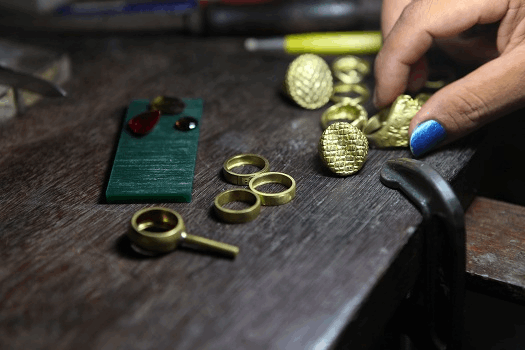Tips for Identifying Precious Metals
With diamonds, their ability to easily scratch glass is a generally reliable way to tell what’s real and what’s not. It’s not quite so simple with precious metals, unfortunately. However, there are still some ways to identify precious metals with a fairly high degree of certainty. The experienced professionals from First National Bullion and Coin, San Diego’s premier dealer of gold, silver, platinum, and palladium, explain what you can do to identify precious metals and make a more confident purchase or investment.
Check the Weight
Gold, silver, and platinum weigh more than similar metals used to make jewelry and other objects that have a shiny appearance. With bullion in the form of bars, common precious metals like gold and silver tend to have certain weights based on bar size. For instance, a standard gold bar weighs about 400 troy ounces, or 27.4 pounds.
Test for Magnetism
Gold, silver, and platinum have one thing in common: they’re not magnetic. If you want to know if you have the genuine thing or a mix of other alloys, hold a strong magnet up to the piece you want to test. If it slides or falls off, it’s probably a precious metal.
Look for Characteristic Qualities
Some precious metals have unique identifying qualities. For example, gold doesn’t rust or tarnish. Silver is warm to the touch because it absorbs heat quickly, and gold or platinum in pure form will feel soft.
Listen for the Right Sounds
Some precious metals make distinctive sounds. For instance, genuine gold makes a resounding “ping” sound when hit against another metal object. If you hear a “thud,” there are other metals mixed in, so what you’re getting isn’t pure.
Look for Hallmarks
Real precious metals typically have markings that indicate purity, weight, and other key identifying factors. On bars and ingots, hallmarks or required markings are usually right on top. On jewelry, the hallmark is usually near the clasp or in another discreet location.
Check the Registration Number
If you have any doubts about coins, bars, or other precious metals you intend to purchase from a dealer or anyone else offering something being sold with packaging, look for the registration number. This is a number you should be able to check online to determine if what you’re getting is authentic.
Check the Dimensions
Certain forms of precious metals, such as bars, have very specific dimensions, and manufacturers try to get as close to these as possible. A reputable precious metals expert should be able to take measurements with a special tool used for this purpose. The results can then be compared to industry standards to determine if what you have is the real thing.
Get a Professional Opinion
If you simply want to know what kind of precious metal(s) you have, get a professional appraisal. Gold has a characteristic color that makes it instantly recognizable. However, there are some precious metals with similar hues and tones. For instance, silver and platinum look very similar to the naked eye. A precious metals expert or appraiser can perform certain tests in a safe way to identify the nature of a particular piece of metal or jewelry.
If you’re looking for the best place to purchase San Diego silver bars, gold coins, and other forms of precious metals, reach out to the trustworthy professionals at First National Bullion. We can answer all your questions and help you find all the information you need on how precious metals can be great investments. Give one of our experienced dealers a call today at 858-666-6570.
The statements made in this blog are opinions, and past performance is not indicative of future returns. Precious metals, like all investments, carry risk. Precious metals and coins may appreciate, depreciate, or stay the same in cash value depending on a variety of factors. First National Bullion does not guarantee, and its website and employees make no representation, that any metals for sale will appreciate sufficiently to earn the customers a profit. The decision to buy, sell, or borrow precious metals and which precious metals to purchase, borrow, or sell are made at the customer’s sole discretion.


